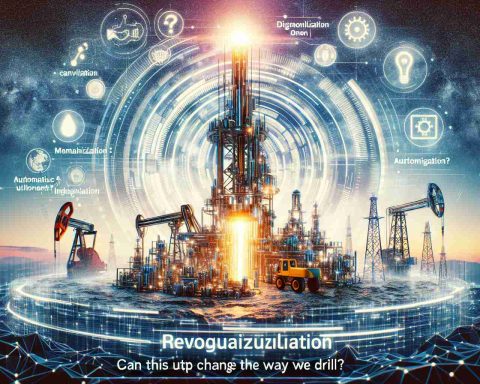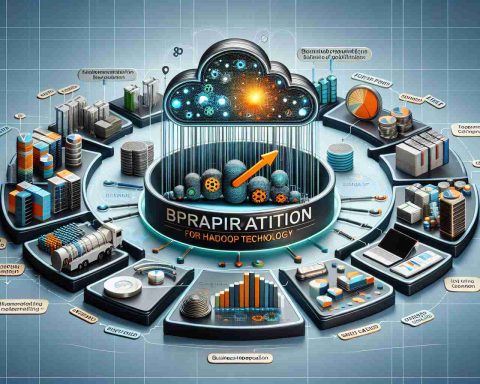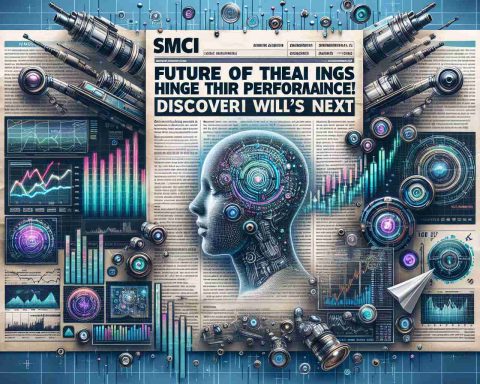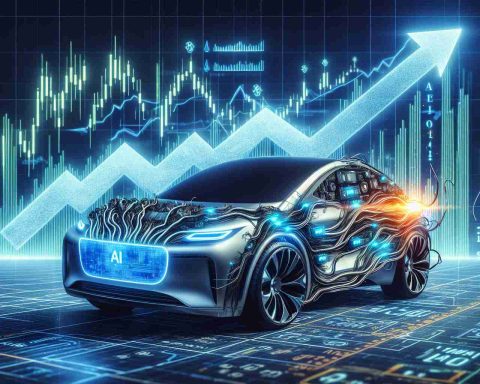In an era where technology constantly redefines itself, Tesla (TSLA) has emerged as more than a car manufacturer; it has become a data powerhouse. Unlike traditional automakers, Tesla has long embraced the potential of data analytics, utilizing the historical data generated by its vehicles to shape future innovations.
Data-Driven Decisions: Tesla’s electric vehicles are equipped with state-of-the-art sensors and connectivity features that send vast amounts of data back to the company’s servers. From driving patterns to real-world performance metrics, this historical data is instrumental in refining Tesla’s autonomous driving technologies. By analyzing vast datasets, Tesla can predict maintenance needs, enhance battery performance, and improve safety features, allowing the company to stay ahead of competitors.
The AI Evolution: As artificial intelligence continues to evolve, Tesla’s historical data becomes even more crucial. The company is using this rich data pool to train and refine neural networks that power features like Tesla’s Full Self-Driving (FSD) software. This constant loop of data collection and analysis provides Tesla with an edge, enabling rapid iteration and real-world testing on a scale unmatched by others in the automotive industry.
Future Tech Implications: Beyond automotive advancements, the implications of TSLA’s data strategy stretch into the realms of smart cities and sustainable energy solutions. As Tesla continues to innovate using historical data, the future may see entire cities optimized with Tesla’s autonomous and data-driven insights, setting new standards for efficiency and sustainability in urban environments.
Tesla is more than just a trailblazer in electric vehicles; it’s a symbol of how historical data, when harnessed correctly, can revolutionize industries and set new technological benchmarks.
Tesla’s Data Revolution: Paving the Way for a Sustainable Future
In the rapidly evolving landscape of technology, Tesla has distinguished itself not merely as an automaker but as a formidable data-centric enterprise. This unique position allows Tesla to leverage historical data in groundbreaking ways, influencing not only automotive advancements but also broader environmental, societal, and economic spheres.
Environmental Impact
Tesla’s approach to data-driven innovation holds transformative potential for the environment. By optimizing electric vehicle performance through continuous data analysis, Tesla enhances energy efficiency, a crucial component in reducing carbon emissions. The iterative process of refining autonomous driving capabilities can lead to smoother traffic flow and less congested roads, further decreasing vehicular emissions. Additionally, Tesla’s focus on developing smart energy solutions feeds directly into the creation of sustainable urban environments. By applying their data expertise, Tesla aids in the transition toward cleaner, more efficient energy usage, contributing significantly to the global fight against climate change.
Humanity and Safety
On the human front, Tesla’s data strategy profoundly impacts safety and convenience. Constant analysis of driving data helps in preemptive identification of potential mechanical issues, allowing for timely maintenance that prevents accidents. Enhanced autonomous driving features, refined through vast amounts of driving data, promise to reduce human error, potentially saving countless lives each year. As Tesla continues to pioneer in this domain, we edge closer to a reality where roads become safer for everyone, marking a significant milestone in technological evolution that directly benefits humanity.
Economic Growth and Innovation
From an economic perspective, Tesla’s data-driven model exemplifies the power of advanced analytics in driving innovation. By maintaining a lead in electric vehicle technology, Tesla is influencing an entire industry, prompting traditional automakers to invest in similar data-centric strategies. This competitive pressure fosters innovation within the automotive sector and beyond, stimulating economic growth by creating new markets and job opportunities, particularly in technology and sustainability sectors. As Tesla and competitors enhance automation and artificial intelligence applications, skill demand is likely to shift, necessitating a workforce prepared for jobs focused on these innovative technologies.
The Future of Humanity
Looking towards the future, Tesla’s commitment to data utilization sets the stage for more interconnected and efficient cities, laying the groundwork for smart urban infrastructures. In these envisioned spaces, public and private transportation would operate in harmony, driven by seamless autonomous systems and optimized energy use, contributing to a sustainable, economically viable, and human-friendly urban fabric.
Ultimately, Tesla’s data revolution underscores a broader narrative where data-powered technology paves the way for holistic advancements. By continuing to push the boundaries of innovation, Tesla is not just shaping the future of transportation but is also offering a glimpse into the potential for a more sustainable and well-connected world, thus influencing the trajectory of humanity’s future in meaningful ways.
Tesla: The Secret Data Revolution Fueling Innovation
Tesla’s transformation from a car manufacturer to a data-centric powerhouse is setting new industry standards. While many recognize Tesla for their cutting-edge electric vehicles and promise of full autonomy, the company’s strategic use of historical data is revealing untapped potential across multiple sectors.
Harnessing Data for Innovation
Tesla’s vehicles are renowned for their sophisticated sensors and connectivity that transmit a continuous stream of data. This wealth of information allows Tesla to make proactive, data-driven decisions that are revolutionizing not only automotive safety and maintenance but also the future landscape of urban living.
How Tesla Utilizes Data:
1. Predictive Maintenance: Real-time data collection provides early detection of faults, leading to timely interventions that minimize downtime and extend vehicle lifespan.
2. Battery Optimization: Data on usage patterns and environmental conditions are used to enhance battery performance, improving the range and longevity of Tesla vehicles.
3. Safety Enhancements: By analyzing detailed telemetry data, Tesla refines its safety protocols, potentially reducing accident rates and increasing driver confidence.
AI and Self-Driving Developments
Tesla’s Full Self-Driving (FSD) software is continuously evolving, driven by its rich and expansive data resources. The data informs the training of neural networks, continually enhancing the reliability and safety of autonomous driving features. This iterative process ensures that Tesla remains at the forefront of AI technology in the automotive industry.
Advantages of Tesla’s AI Approach:
– Scale: Access to millions of miles of real-world data gives Tesla a distinct advantage over competitors with more limited datasets.
– Rapid Iteration: Continuous feedback loops allow for quicker updates and improvements in AI algorithms, ensuring that Tesla’s systems are perpetually learning and adapting.
Broader Implications for Smart Cities
Beyond automobiles, Tesla’s data-driven insights are paving the way for smarter, more sustainable cities. By leveraging its historical data, Tesla has the potential to optimize energy consumption, traffic management, and urban planning, spearheading a new era of smart city development.
Trends and Future Predictions
Tesla continues to push the envelope with its commitment to data-driven innovation. In the coming years, it is expected that:
– Urban Integration: Tesla’s technologies will become more integrated with city infrastructures, offering holistic solutions to urban challenges.
– Energy Solutions: The synergy between Tesla’s electric vehicles and their energy products like the Powerwall and Solar Roof will demonstrate comprehensive sustainable energy models.
Security and Privacy Concerns
As with any data-centric approach, security and privacy remain paramount. Tesla takes rigorous measures to ensure that data collected from its vehicles is protected against unauthorized access, adhering to strict privacy standards and regulations.
Conclusion
Tesla’s use of historical data represents a paradigm shift not just in automotive innovation but across the technological landscape. By continually refining their data strategies, Tesla is not only challenging conventional automotive standards but is also trailblazing pathways for the future of sustainable development and smart city initiatives.
For more on Tesla’s groundbreaking initiatives, visit the Tesla website.




















